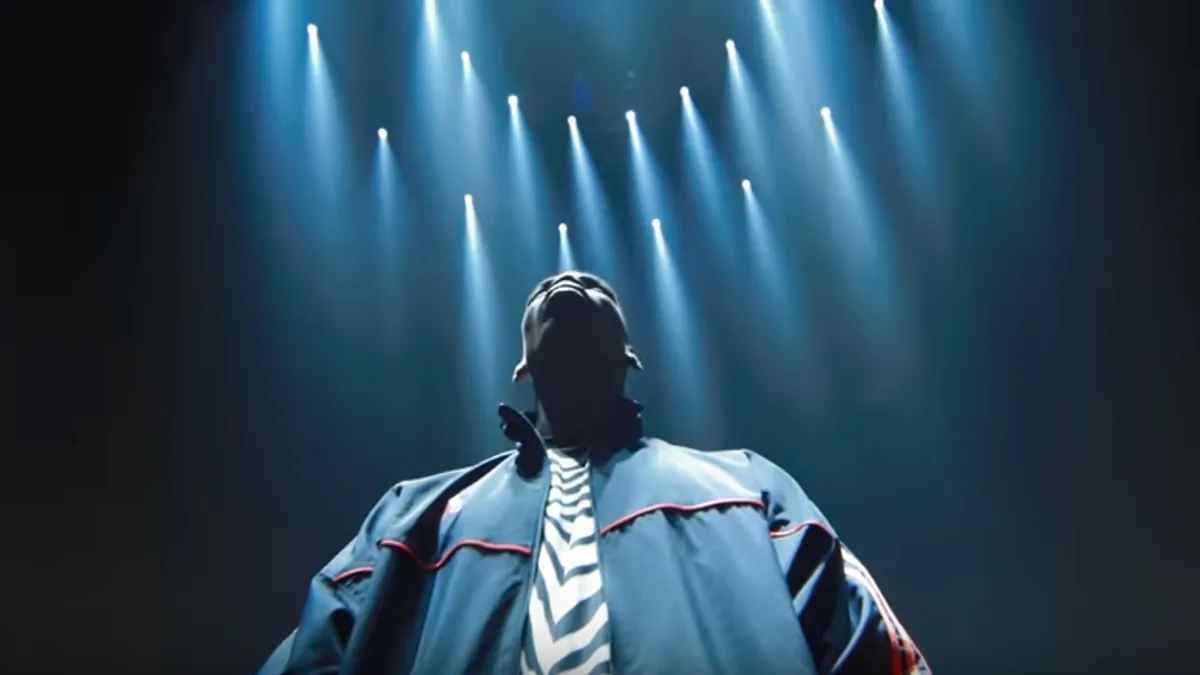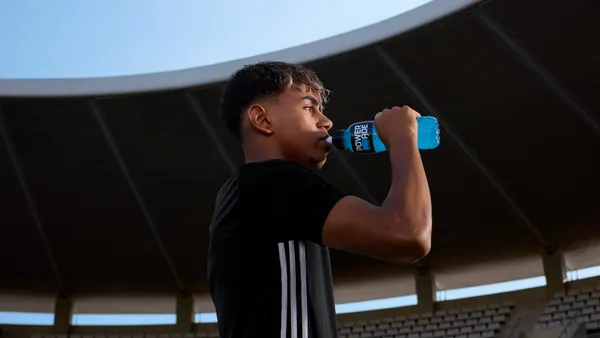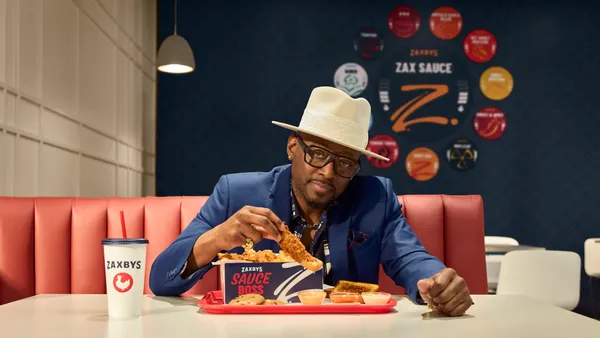Dive Brief:
- Adidas more than doubled its net income in second-quarter earnings reported earlier this week, gaining a major sales boost in North America and China thanks to its World Cup-related marketing and merchandise, according to MarketWatch.
- Adidas had the exclusive rights to put its brand name on match balls and had a greater number of team sponsorships than other marketers at the tournament, per MarketWatch. Net income for the brand reached $460 million, with sales revenue growing 4.4%. Sales of Adidas-branded products jumped 12%, with soccer-themed merchandise proving particularly popular.
- Competitor Nike had its swoosh logo on the jerseys of the French national team, which won the tournament, however. In North America, where Adidas faces stiff competition from Nike, sales for Adidas products grew 15.6%. In its most recent quarter, Nike reported a net income increase of 13% to $1.1 billion, and global revenue grew 8% to reach $9.8 billion. Nike is also growing faster than Adidas in Europe and China.
Dive Insight:
This year's World Cup tournament wasn't just a competitive battleground for professional soccer teams, but also for marketers. Adidas was able to leverage its sponsorships at the tournament to gain momentum against its chief rival both in the states and abroad, even though Nike hitched its brand to the right horse with the French men's national team.
For its World Cup promotions, Adidas launched a hefty campaign called "Creativity Is the Answer," which featured 56 sports figures, celebrities and influencers, including soccer superstar Leo Messi. The push included a 90-second spot and ambassador-created custom content tailored to specific cities, such as New York City, London, Shanghai, Tokyo, Paris and Los Angles.
Adidas' overall strong performance in Q2, bolstered by these soccer-themed efforts, underpins how many marketers were able to spin high viewership and global attention around the World Cup into a boon for their brands. Adidas and Nike going to head-to-head mirrors a similar showdown that emerged between Coca-Cola and Pepsi.
Though Coca-Cola was the official soft drink sponsor of the World Cup, Pepsi ran a heavy amount of soccer-themed marketing adjacent to the tournament with athletes like Messi. Pepsi's #LoveItLiveIt campaign was actually ranked No. 1 in terms of likeability and attention despite not being directly tied to the World Cup brand, according to an analysis from Ace Metrix.
Not all marketers reaped the rewards of the World Cup this year, however. AB InBev, the brewer of beers like Budweiser and Bud Light, poured huge investments, including a large-scale marketing campaign, into the tournament, which ended up weighing heavily on Q2 performance. That weak showing ultimately pushed AB InBev to realign in its global management structure. As part of the adjustment, the company named Pedro Earp as CMO, replacing Miguel Patricio in the role.














